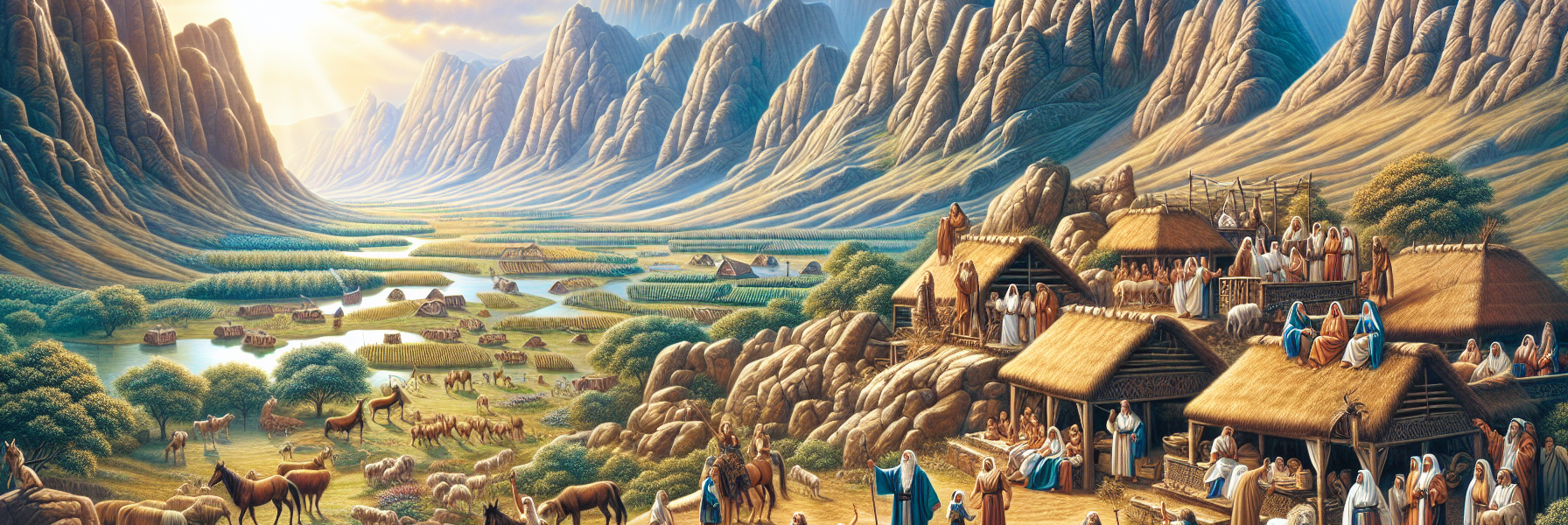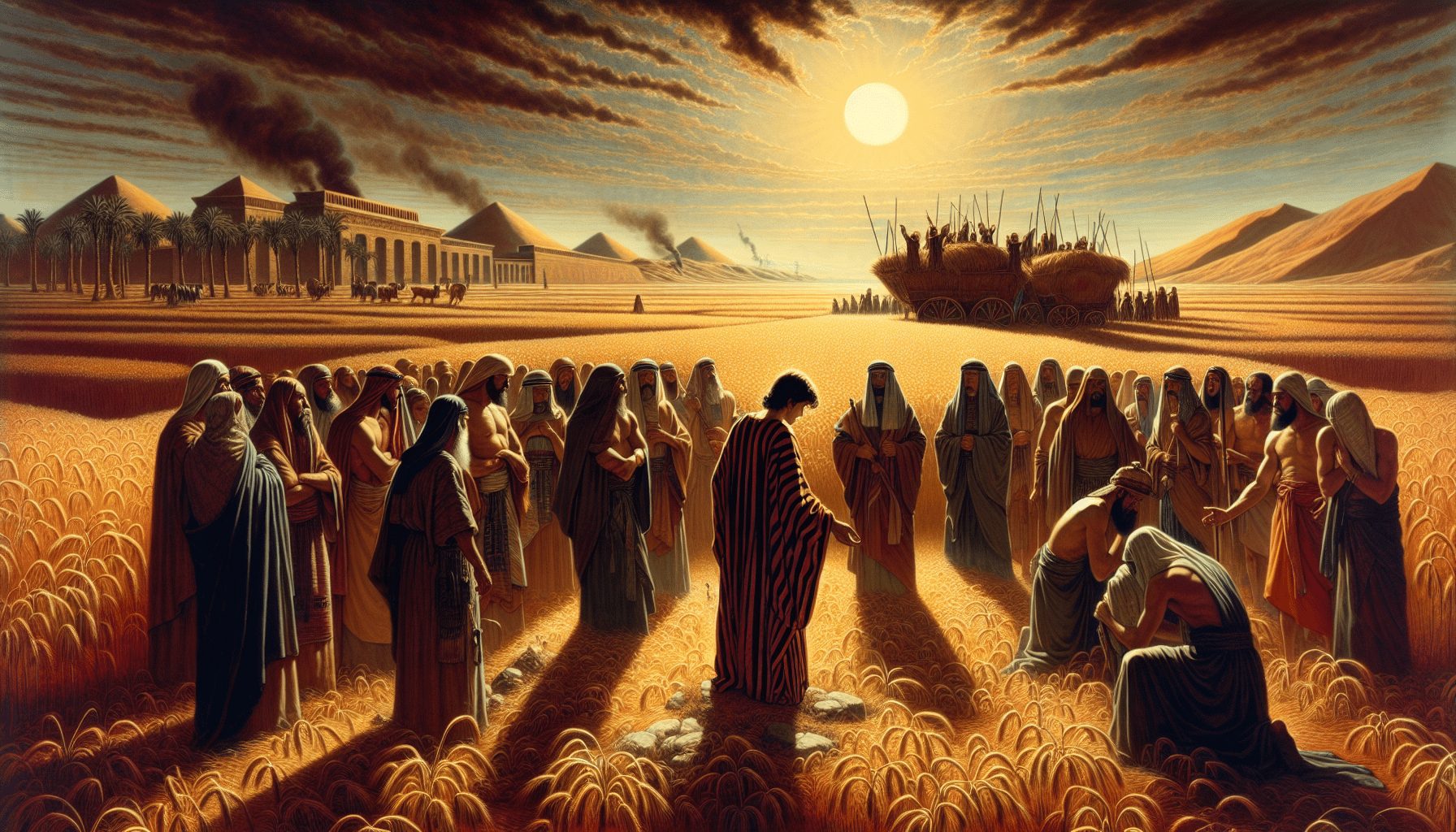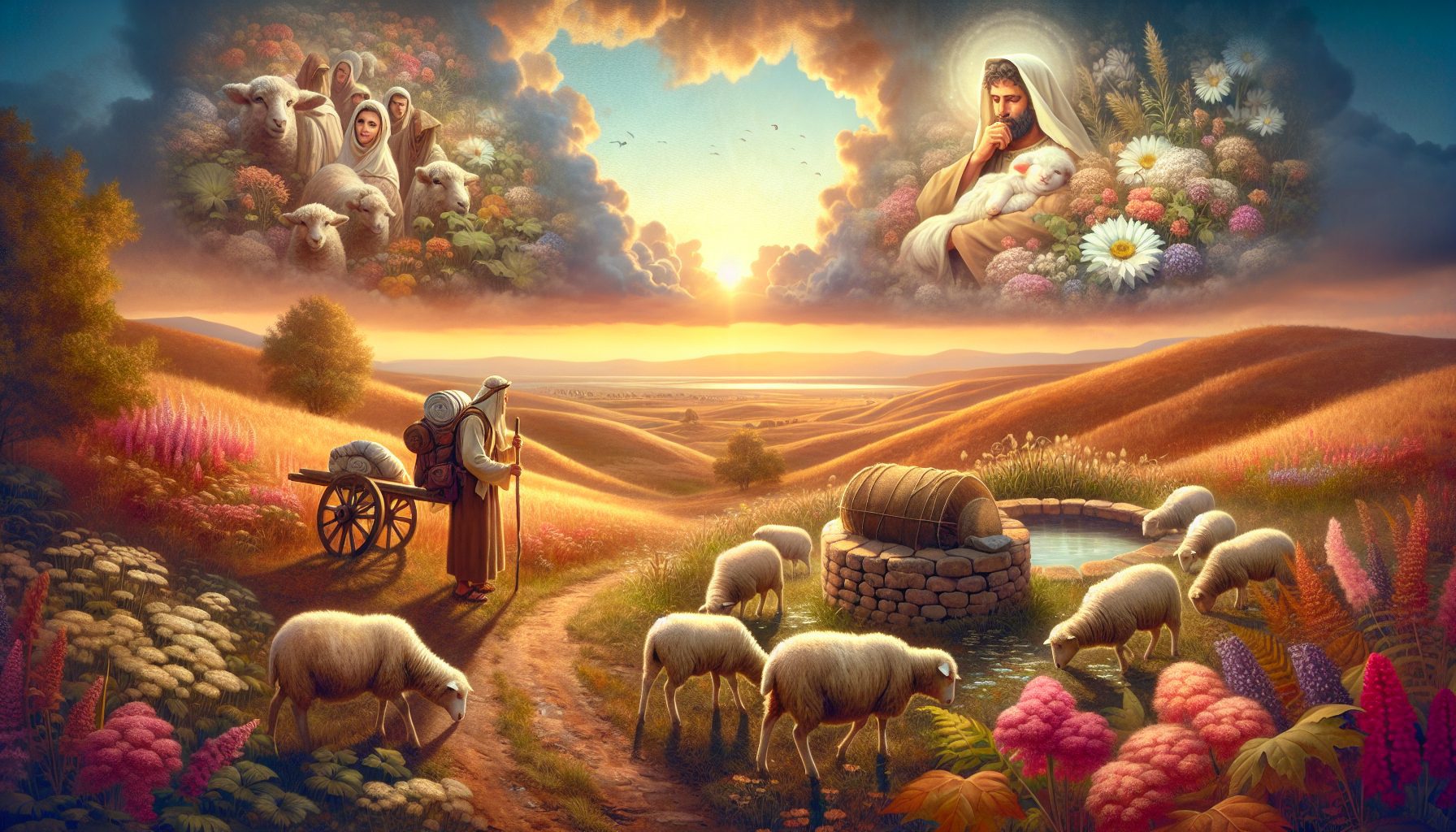**The Chronicles of Esau: Father of the Edomites**
The sun blazed over the land of Seir, casting golden light upon the rugged hills and fertile valleys where Esau, the brother of Jacob, had made his home. Though the brothers had reconciled years before, their paths had diverged greatly. While Jacob dwelt in Canaan, the land of their father’s promise, Esau had settled in the mountainous region of Seir, a land rich with game and abundant pastures, well-suited for a man who had once been a skillful hunter.
Esau, also called Edom for the red stew he had traded his birthright for, had prospered greatly. His household was vast—wives, children, servants, and livestock beyond counting. His sons and grandsons grew into mighty chiefs, each carving out their own territories among the clans of Edom. The Lord had blessed Esau in his own right, for though he was not the heir of Isaac’s covenant, he was still a son of promise, and his descendants would become a nation.
### **The Wives and Sons of Esau**
Esau had taken wives from among the daughters of Canaan, a choice that had grieved his parents, Isaac and Rebekah. His first wife was Adah, the daughter of Elon the Hittite, who bore him his firstborn, Eliphaz. His second wife was Oholibamah, the daughter of Anah and granddaughter of Zibeon the Hivite, and she gave birth to Jeush, Jalam, and Korah. His third wife was Basemath, the daughter of Ishmael and sister of Nebaioth, and she bore him Reuel.
These sons grew into strong men, leaders of their own households. Eliphaz, the eldest, became a father to Teman, Omar, Zepho, Gatam, Kenaz, and Amalek—the latter born of Eliphaz’s concubine, Timna. Reuel, too, had sons: Nahath, Zerah, Shammah, and Mizzah. These were the chieftains descended from Esau, men of renown among their people.
### **The Princes of Edom**
As the years passed, Esau’s descendants multiplied, and their influence spread throughout the land. The sons of Eliphaz and Reuel established their own clans, each ruling over their families and territories. The Edomites became a formidable people, dwelling in the strongholds of Mount Seir, their names recorded among the rulers of the land.
Among them were chiefs such as Lotan, Shobal, Zibeon, Anah, Dishon, Ezer, and Dishan—mighty men who governed their people with strength and wisdom. These were the Horite chiefs, the original inhabitants of Seir, whose daughters had married into Esau’s line, intertwining their destinies with the Edomites.
### **Kings Before Israel Had Kings**
Long before the children of Israel would demand a king of their own, Edom was already ruled by monarchs. The first king of Edom was Bela, son of Beor, who reigned from his city of Dinhabah. When Bela died, Jobab the son of Zerah of Bozrah succeeded him. After Jobab came Husham of the land of the Temanites. When Husham passed, Hadad son of Bedad, who had defeated Midian in the field of Moab, took the throne, ruling from Avith. Following Hadad was Samlah of Masrekah, then Shaul of Rehoboth-by-the-River, and finally Baal-hanan son of Achbor. When Baal-hanan died, Hadar reigned in his place, and his city was Pau. His wife’s name was Mehetabel, the daughter of Matred, who was the daughter of Me-zahab.
These kings rose and fell, each leaving their mark upon the land of Edom, establishing a legacy of power and sovereignty.
### **The Clans of Esau**
The generations of Esau spread far and wide, their names etched into the hills and valleys of Seir. The descendants of Esau became the Edomites, a people fierce and proud, dwelling in the land God had given them. Though they were kin to Israel, their paths would often clash in the centuries to come, fulfilling the words spoken to Rebekah when her sons struggled within her:
*”Two nations are in your womb, and two peoples from within you shall be divided; the one shall be stronger than the other, the older shall serve the younger.”*
Yet for now, Esau’s legacy stood strong—his children, his chiefs, and his kings reigning in the land of their inheritance. And so the chronicles of Esau, the father of Edom, were recorded, a testament to the providence of God over all families of the earth.




